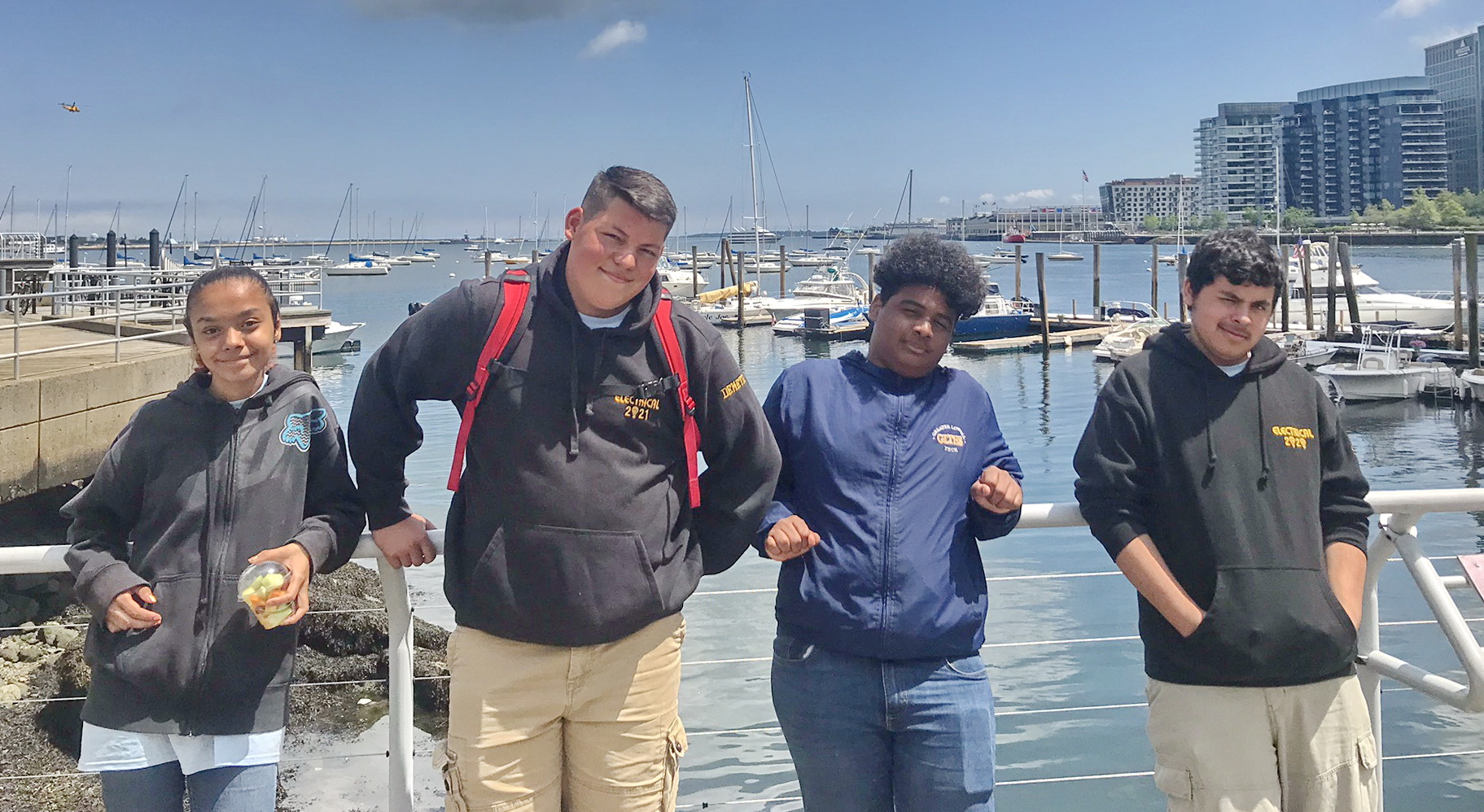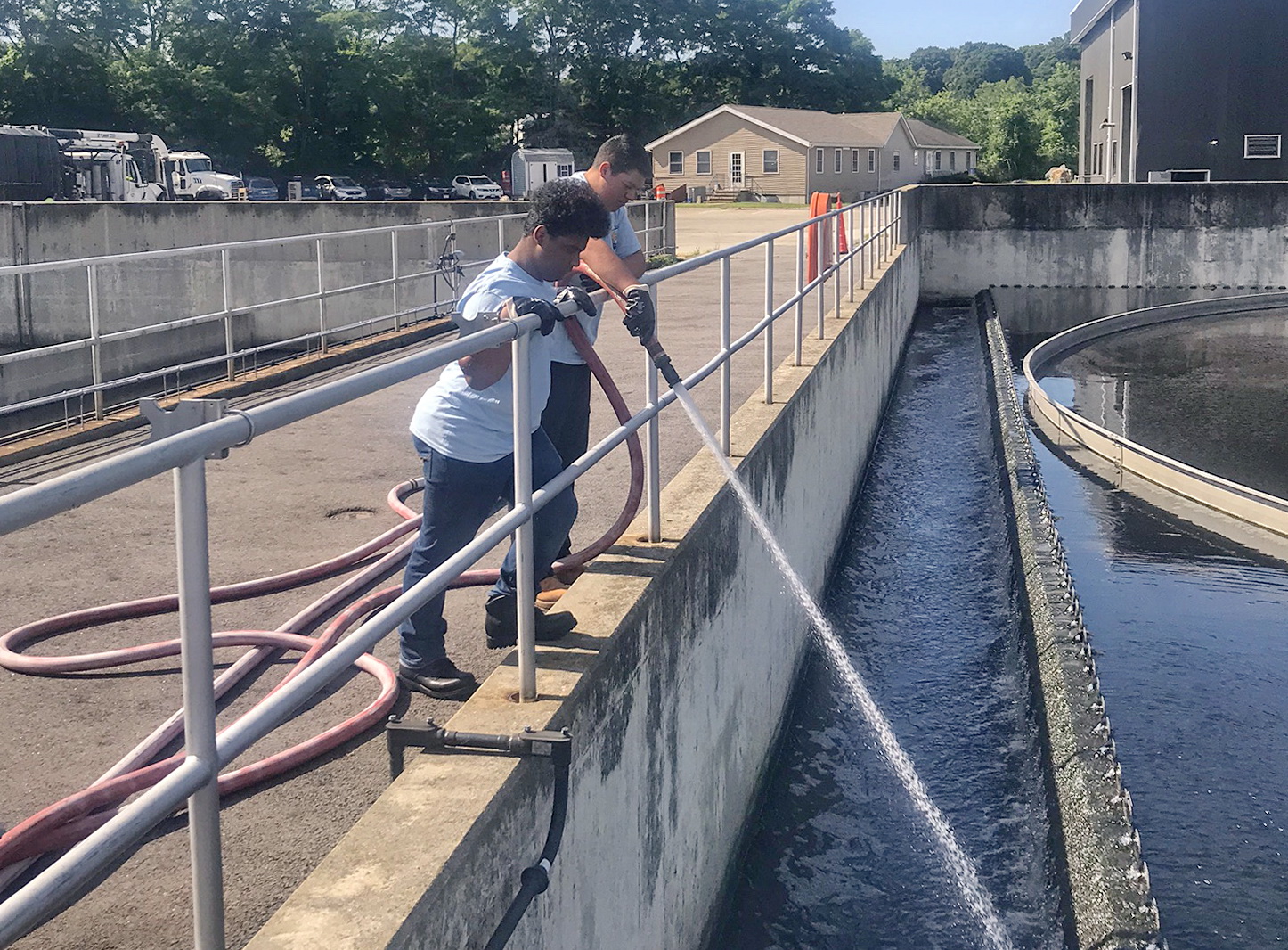Eight Lawrence and Lowell high-schoolers are getting closely acquainted with wastewater treatment this summer.
In Lowell, four teens are shadowing operators, lab technicians, and other employees at the Lowell Regional Wastewater Utility. They also complete maintenance tasks like weeding or hosing down settling tanks.

In Lawrence the students split their time between the Greater Lawrence Sanitary District wastewater facility and the city’s drinking-water plant.
These arrangements are made through NEIWPCC’s Youth and the Environment Program (YEP). In March, EPA Region 1 awarded the Commission a grant to run YEP for the first time in Lawrence, concurrently with the long-established Lowell program.
Lowell YEP will run for its 28th summer.
Both programs, which started July 8 and will run through mid-August, provide inner city teenagers with summer jobs that expose them to environmental fields and careers.
This year Edwardo Ortiz, a student in the electrical trade at the Greater Lowell Technical High School, is back for another season of YEP.
Last year Edwardo and the other YEP teens spent time shadowing the electricians at the Lowell wastewater utility. Work at the treatment plants is tailored to the students’ interests, so he can expect the same opportunity this year.
NEIWPCC collaborated with summer youth employment programs in each city, which hired and pay the teens. The programs are run by local branches of MassHire, the career services organization of the Massachusetts government.
Plans to establish the Lawrence YEP began last summer with talks between NEIWPCC, EPA Region 1, the Greater Lawrence Sanitary District, and Lawrence’s Water and Sewer Commission.
Environmental Education
On top of their work at the treatment plants, the adolescents are learning about environmental issues through hands-on lessons and field trips, taught and coordinated by college interns working at NEIWPCC.
The program is also an opportunity for the YEP coordinators to learn about the field.
Kathryn Piasecki, the Lawrence coordinator, is an engineering student at UMass Amherst.
“I’m pretty familiar with the treatment process [but] I’m also excited to see the treatment process from the operator side,” she said.
She also thinks her YEP students will see the treatment processes “more as a water cycle” by working at both a wastewater and drinking water plant.

The two YEP coordinators say they’ve benefited from being able to work together to develop lessons and plan field trips. They also have resources from previous programs to draw from.
Amanda Brosnan, an environmental studies major at the University of Richmond, is leading the Lowell program. She thinks it’s interesting to see how YEP has changed over the years.
“Sustainability has come more into play, as well as technology,” she said. “It’s also been cool to put my own spin on the program.”
The Lawrence and Lowell groups will band together for several trips, including to a wetlands conservation site, Boston’s Deer Island wastewater treatment plant, and Squam Lake’s Natural Science Center. They’re scheduled to visit EPA Region 1’s laboratory in Chelmsford on July 17.
New York Program
In collaboration with Region 2, NEIWPCC administers funding to the National Partnership for Environmental Technology Education for a similar youth program in New York City.
There, young adults from the Bronx work for the city’s department of environmental protection in various sectors of the water pollution-control field.
That seven-week program is running again this summer.
iWR • July 2019